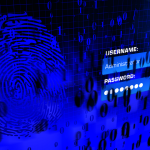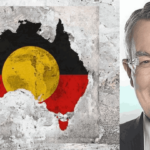Greens MP David Shoebridge, an Exclusive Interview

David Shoebridge took office in the Legislative Council in 2010, since then the Greens MP has been passionate about justice reform. He’s best known as the face behind the popular ‘Sniff Off’ anti-sniffer dog campaign, which has been gathering traction recently.
However, he is also vehemently against the swathe of new reforms that will give police powers to move on protesters in public spaces, and arrest people for crimes they ‘may’ commit in the future.
While Mr Shebridge has often been a lone voice in parliament on these issues, he thinks the support for such causes is growing the streets: “I think the Coalition has misjudged an increasing part of the electorate, who are extremely wary of expanded police powers,” he says.
Mr Shoebridge sat down with Sydney Criminal Lawyers® earlier this week to talk about his time in Parliament, his work, and the case for a Bill of Rights in New South Wales.
You spent several years practising as a lawyer before becoming an MP, how has that shaped your work in Parliament?
Well my original plan was to be a historian, but then I rather foolishly decided to knock off my law degree instead. I ended up graduating from Sydney University and spent three years working for an Appeal Judge in the Family Court, a bloke called Eric Baker. He really tried to teach me that you could work to do individual justice within the law, but it was always a really bounded process.
I then went into private practice, a long time there I was with Taylor & Scott union law firm. We did a lot of work for the construction union, as well as the national metalworkers and maritime union. After being there for six years, I decided to go for the Bar. That had always been my intention as a lawyer, and I practised at the Bar for a better part of seven years – primarily in employment and industrial, but I also did a reasonable amount of tort litigation as well. It was after being at the Bar for the better part of seven years that I came to the New South Wales Parliament.
For the last five years, in terms of my law work, I’ve been the Justice and Police Spokesperson for the NSW Greens. I keep my practising certificate, but I don’t engage in private practice. I do however have a small amount of sport in taking the Government down to the NCAT [NSW Civil and Administrative Tribunal], mainly on freedom of information of GIPA [Government Information (Public Access)] applications but I always bring those applications in my own name.
These days, you seem much more focused on criminal justice reform issues, why is that?
I think when you start looking at what the State Government does, what its role is in terms of policing and oversighting, you realise that the majority of it happens through the exercise of police power and changes to the Crimes Act.
Where you have individuals being confronted by the state, the state has overwhelming power in most cases, and they can bring that to bear against a single individual. They can isolate, and very often intimidate, the individual and I firmly believe that one of the roles of Greens MPs is to make sure that we don’t get an unhealthy expansion of that oppressive power.
For the last five years, you’ve almost been the lone voice in New South Wales Parliament arguing on these issues, where does the resistance from the other parties come from?
The political class in New South Wales is aggressively against human rights, has repeatedly rejected the concept of a human rights bill, and forms the view that Parliament should be able to do pretty much whatever it bloody likes.
It was really the Carr administration that decided to outdo the Coalition on law and order, they thought that if the Premier of the day wrapped himself in blue, and stood next to enough police commissioners, they would win over key targeted marginal voters.
Now the Coalition is applying the same political theory. They’re doing everything they can to stand next to Commissioner Scipione, and say they’ve been tough on crime.
They’re willing to do anything in order to get a headline, and to be seen to be tough on crime, that means taking away someone’s presumption of innocence, mandatory sentencing, stripping away the protections of the Bail Act, and putting people in gaol for future crime.
Initially, I would stand in parliament and point out the obvious: that these discretionary police powers have historically been used to target minorities. They target Aboriginal people, young people, homeless people, students, and people of colour.
I used to find it hard to work out why that argument didn’t have more traction in the Parliament, and why I couldn’t even persuade the Labor party to come across and oppose the laws, given how they would so harshly impact vulnerable people in our community, and then it slowly dawned upon me that they know that’s what the effect of the laws will be – and they’re ok with that.
Their core supporters, the people who vote them in or vote them out of office, particularly the swing voters, don’t think they’re ever going to be affected by these law changes – and so they’re comfortable with it.
With the Bar Association, and others, becoming more vocal on these issues, do you see the tide turning at all?
I think it’s got to the point now where the stripping away of the essential liberties, and expansion of police powers in NSW, has become so routine that organisations that would have traditionally just sent a letter, and noted their protest, have now become a bit ballsier.
One of the examples would be the recent intervention from the New South Wales Bar association. Sick and tired of having their quiet representation to MPs roundly ignored, they’ve come out and made a stink in the media about the proposed set of future crime laws.
With social media we’re also seeing more people understand the expansion of police powers, and how ineffective those powers are in terms of reducing crime or making New South Wales safer. One of the obvious places that discussion is happening is on the Sniff Off Facebook page. People are sick of having their right trampled by an arrogant state government.
You and Jenny Leong have copped a lot of flack for the Sniff Off page, what do you make of the revelations that police were involved in it?
Previously, I think the police have thought that any criticism of them is coming from the fringes, and they could just stand up and bully them on the nightly commercial news networks. It hasn’t worked with Sniff Off, and I think they got a little angry.
There’s been a pretty fundamental shift the electorate, now they’ve seen that a significant part of the really intemperate, sexist, offensive abuse that Jenny and the Greens copped was being directed by police themselves.
The whole idea of the police being above politics, of being there as someone you can go to when you’re in trouble, who are meant to assist you in accordance with the law, that image has been tarnished.
If there’s one pertinent feature to the police’s response that has been missed by much of the mainstream media, it’s that Police Commissioner Scipione has not said a word about it. Ordinarily you can’t get between Scipione and the TV camera, but on this he’s been dead silent. It’s consistent with what I see as a highly politicised Police Commissioner, and I think that’s highly troubling.
Lastly, what advice would you have for other lawyers who want to change things in New South Wales?
I think that there’s a crying need in New South Wales to build up a civil liberties community. The United States has a much stronger tradition of lawyers banding together and fighting for civil liberties, which includes putting their hand in their own pockets and running campaigns.
If we’re serious about turning around the culture in New South Wales, there needs to be a collective commitment amongst the law profession, and through them broader society, to get a Bill of Rights in New South Wales. Victoria’s got one, the ACT’s got one, and they’re actually effective in changing the practice and the culture of government and police forces. We desperately need one in New South Wales.
I’d say to any lawyer, regardless of whether your practice is in the criminal law or commercial, that lawyers have a special place in society, in terms of being guardians of the law and providing leadership to the society as to how laws can uphold the dignity of the individual, and the more lawyers who do that the closer we’ll be to having a Bill of Rights.






